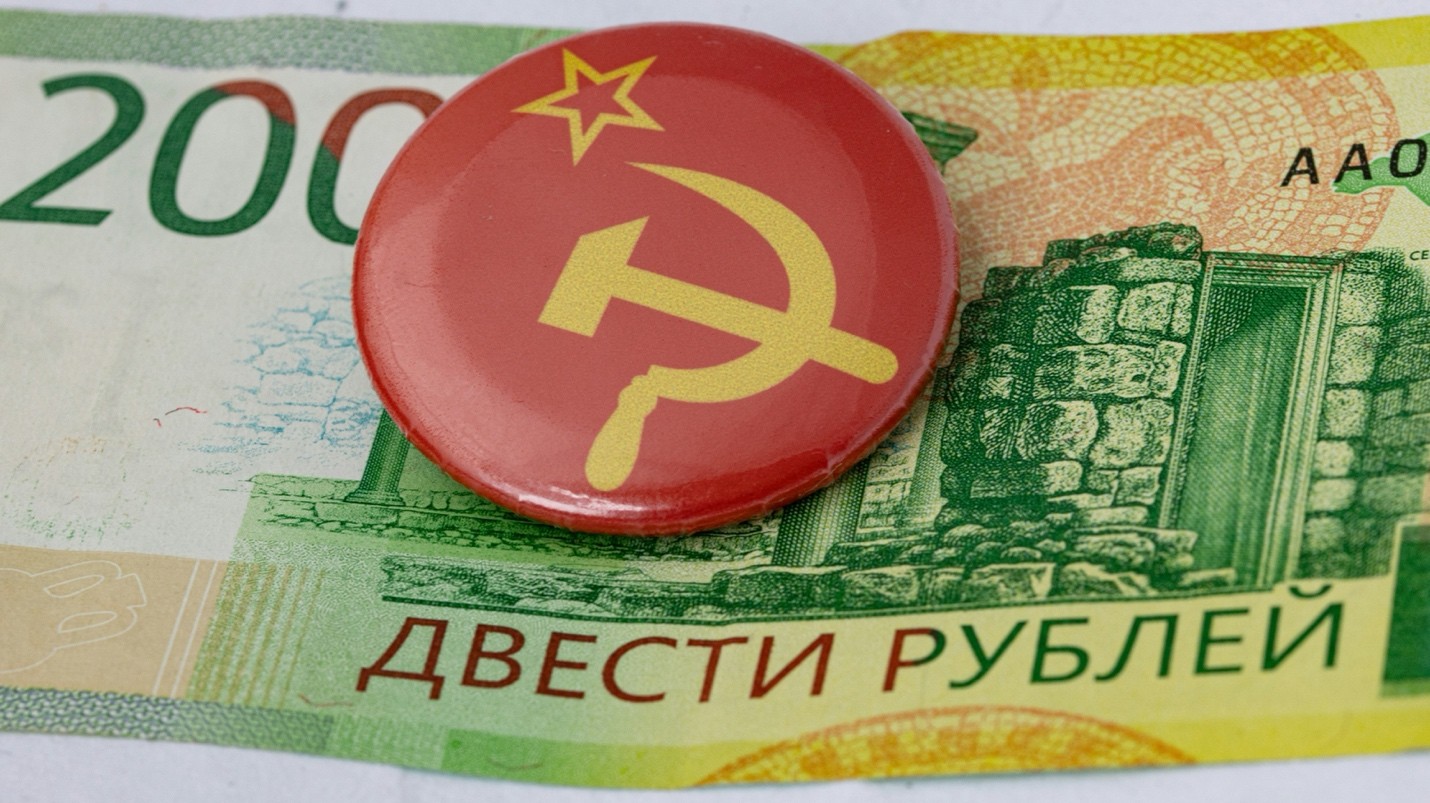
Are Russian Sanctions Working? Former UK Diplomat Who Imposed Them Says No
In a striking admission that challenges prevailing Western policy, Ian Proud—a former British diplomat who personally authorised approximately half of all UK sanctions against Russia—has declared that sanctions are not working as an effective foreign policy tool. Speaking at an Intelligence Squared debate in partnership with GlobalSanctions.com, Proud’s testimony carries particular weight given his direct role in implementing the measures he now criticises.
The Architect’s Verdict
Proud’s credentials are impeccable. From 2014 to 2019, he served at the British Embassy in Moscow, advising UK ministers on sanctions policy during the critical years following Russia’s 2014 annexation of Crimea. His subsequent role saw him authorising sanctions in the months immediately following Russia’s full-scale invasion of Ukraine in February 2022. Yet his conclusion is unambiguous: the sanctions regime has comprehensively failed to achieve its stated objectives.
According to Proud, EU sanctions Russia and broader Western restrictions were designed with clear purposes outlined in the Russia (Sanctions) (EU Exit) Regulations 2019: to make Russia cease its destabilising actions in Ukraine and avoid interfering with Ukrainian sovereignty. Measured against these aims, reported by Proud during the debate, the results speak volumes. Since 2022, as Proud explained, 5.9 million people have fled Ukraine, 3.7 million have been internally displaced, and 1.3 million people—including children—have been killed or injured. Ukraine remains bankrupt, dependent on £50 billion annually in Western aid, with its energy infrastructure under sustained bombardment.
The Political Economy of Failure
Rebecca Harding, CEO of the Centre for Economic Security and a trade economist, provided crucial context on the impact of sanctions on Russia from an economic perspective. According to research from Tufts University cited by Harding, sanctions prove effective in just 34% of cases globally. Even where objectives are limited—such as restricting Russian military finance—the outcomes remain disappointing. Whilst Russia’s energy revenues declined by 19% year-on-year, stated Harding, the country continues prosecuting its war with no indication of strategic retreat.
The economic dimension reveals a more complex picture than simple GDP figures suggest. Tom Keatinge, founding director of the Centre for Finance & Security, acknowledged that Russia’s economy faces genuine strain beneath surface-level growth statistics. However, this observation merely confirms that economic pressure exists—not that it translates into policy change, which remains the fundamental measure of sanctions effectiveness.
Strategic Culture and Western Assumptions
Harding identified a critical flaw in Western sanctions strategy: a fundamental misunderstanding of Russian strategic culture and the role of economics within it. Western policymakers assumed that restricting access to financial markets and technology would compel behavioural change. This assumption rested on a belief that all nations aspire to participation in the dollar-based international rules-based order—an assumption Russia has systematically dismantled.
Russia began preparing for economic warfare long before 2022. According to Harding’s analysis, Moscow switched export support measures from oil and gas to grain production in 2017, following earlier sanctions. Russia now controls nearly 25% of world wheat exports, creating dependencies in African and European markets that complicate the sanctions coalition. Why sanctions on Russia have failed, Harding argued, stems from this strategic mismatch: “Russia and China are way ahead of us in terms of playing a long game.”
The Domestic Political Cost
Edward Lucas, columnist at The Times, defended sanctions whilst acknowledging their limitations. His defence centred on individual cases—such as the Magnitsky sanctions that targeted specific human rights abusers—rather than broader economic measures. Even Lucas conceded the temporal failure of 2014 sanctions, noting that weak initial implementation taught Putin that Western resolve was questionable.
Yet this acknowledgement highlights a devastating pattern. As Proud emphasised, every new sanctions package proves Putin’s narrative to the Russian people: that the West harbours implacable hostility towards Russia. “Every time we impose a new round of sanctions against Russia,” explained Proud, “we simply prove in the minds of ordinary Russian people that Vladimir Vladimirovich was right all along.”
The Unintended Consequences
The collateral damage extends beyond propaganda victories for the Kremlin. International sanctions designed to isolate Russia have accelerated its integration with China and strengthened alternative payment systems. Exclusions from SWIFT have propelled adoption of China’s renminbi-based interbank payment system. Russia’s circumvention strategies—including its shadow fleet for oil exports—have created entirely new industries specifically designed to evade Western measures.
Meanwhile, European citizens bear tangible costs. Higher energy prices, exacerbated inequality, and disrupted supply chains have fuelled populist narratives across the continent. As Harding noted, Western policymakers failed to calculate how sanctions would affect domestic populations, creating political instability that serves Russian strategic interests.
The Legal and Moral Dimensions
Perhaps most troublingly, the sanctions regime raises profound questions about due process and proportionality. The recent Supreme Court judgment in Shvidler v FCDO exposed these tensions. Lord Leggatt’s powerful dissent—though unsuccessful—characterised the sanctions imposed on Eugene Shvidler, a British citizen with no proven links to the Putin regime, as a “serious invasion of liberty” justified by “flimsy reasons.”
The case highlighted how Russian sanctions can ensnare individuals based on tenuous connections, with devastating consequences for families and livelihoods, whilst potentially failing to advance any measurable foreign policy objective. Ninety-two percent of individual travel restriction sanctions, Proud revealed, targeted Russian citizens who had never visited the UK and never intended to—a statistic that suggests symbolic gesture-making rather than strategic calculation.
Towards a Reckoning
The debate’s pre-vote showed 36% agreeing that sanctions don’t work, with 41% disagreeing. By the final vote, following expert testimony, 63% disagreed with the motion—suggesting sanctions retain public support. Yet this outcome may reflect emotional commitment to opposing Russian aggression rather than dispassionate assessment of policy effectiveness.
The fundamental question remains unanswered: if sanctions have manifestly failed to achieve their stated objectives over more than a decade, when does persistence become mere stubbornness? Proud’s conclusion was stark: “Sanctions are our foreign policy and our foreign policy has failed.”
Without diplomatic engagement, military deterrence, or willingness to reassess failed strategies, Western policy has reduced to economic warfare by committee—a 27-nation coalition attempting to outmanoeuvre a single adversary who need only maintain his position. Three years of comprehensive sanctions have not brought peace to Ukraine. They have, however, demonstrated the limits of economic coercion when divorced from broader strategic thinking and clear pathways to resolution.



 Bitcoin
Bitcoin  Ethereum
Ethereum  Tether
Tether  XRP
XRP  USDC
USDC  Solana
Solana  TRON
TRON  Lido Staked Ether
Lido Staked Ether  Cardano
Cardano  Avalanche
Avalanche  Toncoin
Toncoin